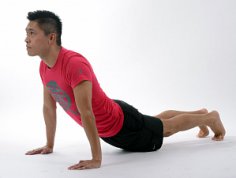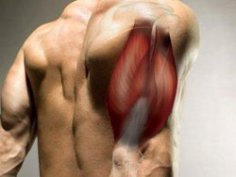
Temperature effect. It sounds almost magical: you drink a glass of ice water — and the body starts burning calories. Social networks are happy to turn this idea into a promise of easy weight loss. But if you stop for a minute, take a deep breath and look at the real picture, it becomes clear: this phenomenon is not a trick, but physiology. And, as often happens with the body, everything is more complicated, deeper — and at the same time simpler, informs Ukr.Media.
What is cold-dependent thermogenesis and why does it work?
When we drink cold water, the body actually uses energy to warm it up to body temperature. This is a natural reaction — part of thermoregulation that activates heat production. This phenomenon is called thermogenesis. And yes, it does burn calories. But it's important to honestly look at exactly how many calories and how significantly it affects weight.
How many calories does cold water actually burn?
A study by Humboldt University shows that after drinking 500 ml of water at a temperature of about 22°C, the metabolic rate can temporarily increase by about 30%. In numerical terms, this is only 20-30 calories – the same as you burn in 10 minutes of leisurely walking. Even if you drink 2-3 liters of cold water per day, the “bonus” will be a maximum of 180 calories.
It's not in vain. It's just not enough. It's a small component that, like a drop in the ocean, is not capable of affecting energy balance on its own. For example, one sweet drink or a piece of chocolate can neutralize this effect in just a few seconds.
But doesn't the body spend energy on more than just water?
Yes. And this is where the most interesting part begins. The body constantly spends calories not only on digesting water, but also on maintaining temperature, on digesting food, on adapting to the environment. And if we are looking for where the real energy expenditure is hidden – it is here:
Food-induced thermogenesis: Protein foods, for example, require 15-30% more energy to digest. A glass of protein yogurt or a serving of legumes activates this process much more than cold water.
Physical activity: any movement — even simple house cleaning or a walk — triggers a complex metabolic chain that “burns” fat more effectively than passive cooling of the body.
Adaptive thermogenesis: the body learns to respond to temperature changes — cold activates brown fat, but this process is controlled by genetics, the duration of exposure, and it is more complex than just drinking ice water.
And if it's not about calories, then what is it about?
About understanding what's happening in the body. And about appetite. Because water, regardless of temperature, affects our eating habits more strongly than it seems at first glance.
The role of water in appetite control
By drinking 500 ml of water before a meal, you are not just “stretching” your stomach. You are giving your body time. The signal of satiety comes with a delay, but water helps to shorten this “delay”. The brain has time to notice: “I am not so hungry anymore.”
Another important detail is that thirst is often disguised as hunger. How many times have we gone to the kitchen “to have a snack,” when in fact we simply lacked fluids? Try this: next time before a snack, have a glass of water. And wait 10 minutes. Sometimes that's enough.
Why is hydration a key part of the metabolic picture?
Water is not just a carrier of temperature. It is a carrier of life in the literal sense. It is in a liquid medium that every biochemical reaction takes place. Even the burning of fat.
Here's what we know for sure:
-
Even mild dehydration slows down lipolysis, the process of breaking down fat.
-
Water transports nutrients to cells and helps remove waste products.
-
It maintains energy levels, preventing you from reaching for sweets simply because you're tired.
-
And what's especially important is that water supports muscle function. And muscles are the tissues that actively burn calories, even at rest.
Tip: If you notice fatigue, lethargy, or a headache, take a few sips of water before reaching for caffeine or something sweet. It’s not magic—it’s physiology.
Conclusion: Not the focus, but the system
The idea of “cold water for weight loss” is an example of how one scientific fact can be taken out of context. And when it is presented as the main method of fighting weight, it does not help. It distracts. From truly effective things.
Yes, cold water has a micro-effect. But it is not the cause, not the support, not the strategy. It is a detail. The background. A modest part of a large mosaic, where the main elements are a balanced diet, exercise, healthy sleep and, yes, regular water consumption. Any temperature that is comfortable for you.
Practical advice:
-
Calculate your daily water requirement (on average 30-40 ml per kg of weight).
-
Don't wait until you feel thirsty – carry a water bottle, set a reminder.
-
Drink with meals — not only for satiety, but also for better digestion.
-
If you want to drink it cold, drink it if you like. But don't make a strategy out of it.
Because the body is not a calorie-burning machine. It is a living system that awaits support, not manipulation. And in it, water is not a trick, but care.
Джерело: ukr.media






